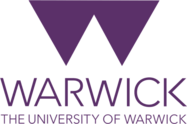Consortium
Ranked in top 54th in the world by the 2019 QS World University Rankings, the University of Warwick (UOW) is one of the UK’s leading research-intensive universities. The School of Engineering is ranked as the 3rd strongest unified engineering school in the UK, after Oxford and Cambridge, with 70% of its output valued as internationally excellent and 95% of international standard. It has the state-of the-art equipment for physical testing as well as computing facilities including hardware and necessary software licences to support the needs of the project. The ground engineering and environmental research group has currently 6 academic members and a cohort of 16 Postdoc and PhD students with the expertise in different areas of geotechnics including geomaterials’ behaviour, hydrogeology, geoscience, computational geomechanics, stochastic/probabilistic analysis, soil/rock heterogeneity, soil/rock constitutive model development and numerical implementation, micro-model processing, big data and artificial intelligence and etc. The group has been active in implementing EU and nationally funded projects, of which 5 are on-going.
GIG was created in 1945 as a research and development institute, subordinated to the Ministry of Energy. A part of the Institute constitutes the Experimental Mine “Barbara”, established in 1925. GIG employs a staff of 535, including 430 graduates, 113 of whom hold PhD degrees, 28 professors and associated professors. GIG works for industry, state and local authorities, and other customers. The multidisciplinary activities of the Institute comprise the following fields: mining and geoengineering, geology and hydrogeology, geophysical engineering, industrial safety, environmental engineering, surface and structures protection in mining areas, utilization of minerals, sustainable energy technologies, quality issues, education and training including social and economic issues, certification of equipment and materials. GIG has extensive experience of acting as partner and coordinator of the European projects (FP, RFCS, ECSC, Central Europe and etc.). Over the last 10 years GIG has been involved in about 30 projects supported by RFCS.
POLITECNICO DI MILANO (PoliMi) is a state scientific-technological university established in 1863 in Milan. The university has 7 campuses locate in Milan and in other nearby Italian cities. It is one of the most outstanding technical universities in Europe and the largest Italian university in Engineering, Architecture and Industrial Design with more than 41000 students. Organized in 12 Department and 4 Schools, POLIMI provides education programs for bachelor, master and PhD levels encompassing all the main areas of engineering, architecture and industrial design. It has been very active in European research projects since the early programs, with 281 projects approved within FP7 and 151 projects within H2020. In the field of Civil and Structural Engineering, PoliMi was ranked 7th in the world in the last QS World University Ranking, thus resulting 4th in Europe, 1st in Italy. The Department of Civil and Environmental Engineering employs 102 faculty members, 69 post-doctoral research fellows, 89 PhD students under 2PhD programs and 44 staff. The Department performs interdisciplinary research in the fields of theoretical, computational and experimental mechanics of materials and structures, with main focus on concrete and masonry structures, including architectural heritage; engineering seismology and earthquake engineering; geology, soil mechanics and geotechnical engineering; structural diagnosis and retrofitting; hydrology, hydraulic engineering and water science. The PI of the PoliMi research group is currently coordinating the H2020 project ReSHEALience (NMBP-2016-2017 – GA 760824) on advanced cement based materials for long-lasting infrastructure applications in extremely aggressive environments. Such expertise and leading role in a H2020 project focused on the concept and application of concrete with recycled constituents, will be fundamental in successful delivering of activities related to the upcycling of CMWGs.
The University of Exeter (UNEXE) combines world class research with excellent student satisfaction at its campuses in Exeter and Cornwall. It is a member of the Russell Group of the UK’s leading research-intensive universities. The University has 21,273 students from more than 130 different countries. The University’s Camborne School of Mines (CSM), a world-renowned mining school. Founded in 1888, CSM is an interdisciplinary mining school working at the forefront of a range of geoscience subjects including geology, mining engineering, mineral processing, sustainability and remediation. CSM is a responsive, flexible and engaged partner to the industry, with a track record of delivering measurable results. We are experienced in providing services including consultancy, research and development, bespoke teaching and training to governments and international agencies, as well as the mining industry. These long-term partnerships have produced significant success in consortium research, attracting funding from UK and international sources. CSM staff have considerable experience in RFCS projects, including several concerned with the management of abandoned mines.
BRGM is France’s leading public institution in the Earth Science field for the sustainable management of natural resources (including mineral resources) and surface and subsurface risks. The various roles of BRGM are as follows: technological research and development and innovation; support for public policies and citizen information; international cooperation and development aid; safety and monitoring of former mining sites. BRGM teams from the Water, Environment and Ecotechnologies Division will be involved in this project. This Division works for a better management of water, polluted sites and soils, waste and mineral resources. The BRGM teams involved in this project (Waste and raw material unit) has a strong experience in process simulation (primary production and waste treatments) and in methodological development linked to environmental evaluation (LCA) of raw and secondary materials production and consumption and linked to the economical evaluation of environmental externalities. The BRGM is actively involved as coordinator and/or partner in several European projects, the more relevant to the MINRESCUE project being CERES, IMP@CT and SLIM.
NUOVA TESI SYSTEM S.r.l. (NTS) is one of the most qualified and innovation leading companies in the sector of precast concrete construction in Italy, with 30 years’ experience in the field of commercial and civil building construction. NTS has 3 different production plants in Italy, each equipped with 3 production lines (200 m each) and each of them able to manage the whole manufacturing process of precast structural element production, from the mix-design development to the quality control delivery. Through the long-time involvement in research projects (including EU funded ones), the company has dedicated one of the plants, located in Nervesa della Battaglia to the manufacturing of advanced precast elements integrating different constituents and innovative functionalizing solutions in the material and design concept, also with the ability to test them integrated into different service contexts; such plant will serve for the current project purposes. Special care is also dedicated to the curing of the produced concretes, in order to deliver long-lasting products also featuring high resistance to environment-borne aggressive agents. NTS role in H2020 EcoBinder project as leader of business models and market strategy will be instrumental at successful accomplishment of WP3 activities.
CY Cergy Paris University is a French university in the Paris area. CY Cergy Paris University is an attractive centre of teaching and research with over 19,000 students. With more than 500 researchers and over 400 PhD students working in 22 research centres, CY Cergy Paris University is among the most active research centres in France with a high international standard. It is a member of the Paris Seine Universities and has been awarded the I-SITE (Initiative Science-Innovation-Territory-Economy) in the framework of the French government’s “Investments for the Future” program. L2MGC, Laboratory of Mechanics and Civil Engineering Materials which is involved in this project, conducts research activities in the field of the civil engineering related to construction materials optimization and the behaviour of structures. The research group leads activities on material formulations and characterisations, waste and co-products valorisation and the coupled thermos-hydro-mechanical behaviour of materials and structural elements. The laboratory, which has worked on several national and EU funded projects, adopts phenomenological, normative, and performance based approaches for materials behaviour under quasi-static loading and for the fracture mechanics under both environmental and mechanical loads.
SUBTERRA INGENIERÍA, S.L. is a private engineering company established in 2008, specializing in the assessment of geological, hydrological and geotechnical conditions imposed by the surrounding ground. They are actively involved in EU Research in this area and have been partners in the RFCS projects PROSAFECOAL, PRESIDENCE, GEOSOFT, COGAR, SLOPES and ongoing projects RAFF and TEXMIN. During his collaboration within these projects, SUBTERRA has shown his interest in modelling difficult conditions to be tested or reproduced in field or laboratory tests. His expertise in this aspect, has been crucial for the development of new techniques to ensure stability during and after mine operations.
Lubelski Węgiel Bogdanka S.A. is one of the leading producers of hard coal in Poland. The company’s primary activities are in the area of extraction, enrichment and sale of bituminous coal. The LWB mine supplies mainly industrial customers in eastern and north-eastern Poland. The coal sold by the LWP is mainly used for the generation of electric and thermal energies as well as for cement production. LWB employs about 5,200 people and it produces over 9.5 million tonnes of coal annually. LWB is the efficiency leader in the mining sector that complies with the highest work safety standards. It has proven record of being a reliable supplier of coal for commercial power plants able to maintain its competitive advantage and to continuously increase its value, while improving its work safety and environment protection standards and implementing innovative solutions that is fitting and relevant to the purpose of this project.
Polska Grupa Gornicza S.A is Europe's largest coal company which employs about 42000 people. The mining area is located in the Upper Silesian Coal Basin. PGG extracts coal, which is primarily used for energy production and is sold to energy companies, industrial users and individual consumers. The Company extracts coal in 8 underground mines and owns 5 specialized units. The company produces about 30 million tonnes of coal annually, which accounts for 39% of the production of this raw mineral in Poland. With its resources PGG’s guarantees the long-term supply of this fossil fuel. The applied coal mining and processing technologies, knowledge and competences enabled optimizing the production processes and offering a wide range of coal products on the market, meeting all customer demands.
POLTEGOR-Instytut - Institute of Opencast Mining is a research organisation with almost 70 years of experience. The institute is a leading research and development organisation in the area of opencast mining in Poland. The main aim of the institute is to create and implement within the mining industry new, innovative, clean and environmentally friendly technologies of exploitation. It has wide ranging experience in realisation and management of different types of research and development projects. In recent years PTG took part, as leader or project partner, in several projects realised within RFCS and Interreg Europe schemes. Currently the Institute is involved in three RFCS projects. In case of one project (RAFF) PTG is the leader. The Institute employs 12 researchers, 13 research and technical employees and 15 engineering and technical employees. It consists of 5 departments with 12 laboratories and has well experienced staff with long experience in geological and geotechnical research as well as in water treatment and environment protection. The institute is also active in the issue of renewable energy sources and energy efficiency. This year PTG has finalised two Interreg Central Europe projects focused on waste heat utilisation and on dynamic lighting implementation in municipalities.
DTEK Energy Limited Liability Company is the largest Ukrainian vertically integrated energy company that implements wide range of work starting from coal production and its preparation to generation of electricity with its further supply to consumers. DTEK Group companies have over 73,000 employees. Its coal sector, that includes 16 mines, is the main supplier of raw materials in Ukraine. In 2017 total coal production of the company amounted to 24.8 million tons. This allows to consider DTEK as one of the largest coal producers in Europe. The company is also active in solar power and wind energy generation. Its new 200 MW solar power plant in Dnipropetrovsk region will be one of top 3 largest plants in Europe.
GIG Research Institute - visit us at gig.eu












